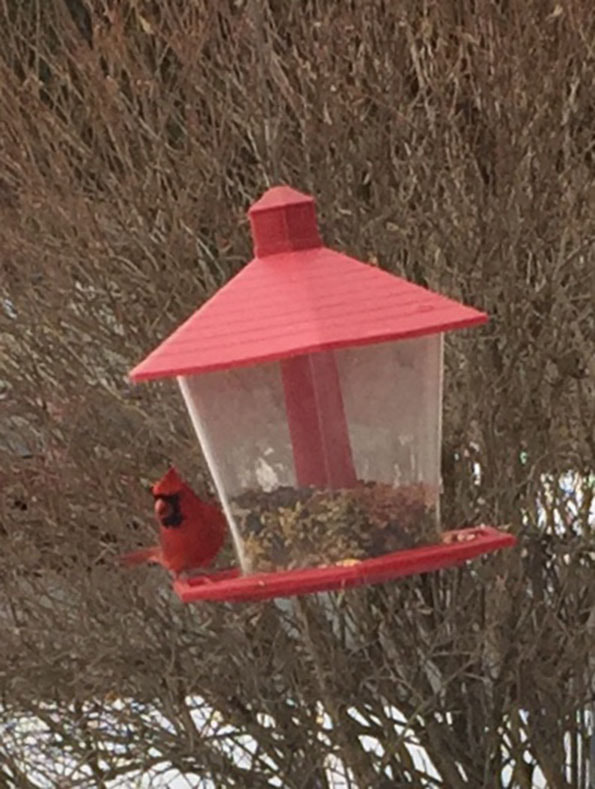 If you’re an avid birder, then this is your time of year to apply your birding expertise. The National Audubon Society’s (NAS) 121st annual Christmas Bird Count gets underway from Dec. 14 to January 5. For those new to the count, it’s an early-winter bird census where thousands of volunteers across the U.S., Canada, and many countries in the Western Hemisphere, go out over a 24-hour period on one calendar day to count birds in their area. According to the NAS, your local count will occur on one day between those dates. And you may participate in as many counts as you wish. So how does the count work? NAS says there is a specific method to the Christmas Bird Count (CBC). All participants must make arrangements to participate in advance with the circle compiler within an established circle, but anyone can participate. To register, check the NAS website then click on the area of their map to see who is the count compiler. In our area it’s Laurie Goodrich at Hawk Mountain Sanctuary. She can be reached at [email protected]. If she’s not within your area, she could point you to another compiler. Each count takes place in an established 15-mile wide diameter circle, and is organized by a count compiler. Count volunteers follow specific routes through a designated 15-mile diameter circle, counting every bird they see or hear all day. It’s not just a species tally as all birds are counted, and it gives an indication of the total number of birds in the circle that day. And if you’re a beginning birder, you’ll be able to join a group that includes at least one experienced birdwatcher. If your home is within the boundaries of a CBC circle, then you can stay at home and report the birds that visit your feeder on count day as long as you’ve made prior arrangements with the count compiler. Some birders may wonder if they can do their own CBC and send in their data. NAS says no since each CBC is a real census, and since the 15-mile diameter circle contains a lot of area to be covered, single-observer counts (except in unusual circumstances) cannot be allowed. But there is an alternative. Birders can get involved in the Great Backyard Bird Count (GBBC) organized by Audubon along with Cornell Lab of Ornithology. It takes place President’s Day weekend each February wherein you can count the birds each day in your backyard/community and then enter the results online. WATERFOWLERS Local goose hunters get their third of fourth goose hunting season when it re-opens Dec. 14 – Jan. 16. The last segment runs Jan. 29 – Feb. 20. Since many farmers have harvested their corn and soybean fields, geese are feasting on corn and bean remnants that the harvesting machines dropped. As of last week, two large flocks of geese were hitting the cornfields off Mauch Chunk Road in South Whitehall, the land owned by GES Chemicals (Trojan Powder Company for us old timers). Smaller flocks have also been spotted in fields in Upper and Lower Macungie Townships and several farms near Leaser Lake. And it won’t be long before snow geese show up. A lot of farmers are growing winter wheat which the snows love and can decimate a small field in short time. Look for many of them to overnight on a quarry in Fogelsville and one on Route 329 on the outskirts of Northampton. PA GOV. WOLF VETOES FIREARMS/AMMO BILLS From the NRA/ILA comes word that Pennsylvania Gov. Tom Wolf vetoed a pair of pro-Second Amendment bills that had passed both chambers of the Legislature with solid support. The move was not unexpected, given that the anti-gun Governor has been unilaterally demonstrating his disdain for freedom and liberty for months. Nevertheless, we want to thank the legislators who took a bold stand for the rights of Pennsylvanians. House Bill 2440 and House Bill 1747 had both passed the Senate in November on votes of 29-20 after easily clearing the House earlier this Fall. These bills were written to protect constitutionally guaranteed rights during declared states of emergencies. House Bill 2440, by Rep. Bill Kortz, would have designated shooting ranges, sportsman clubs, hunting facilities and business relating to the sale or production of firearms and ammunition as life-sustaining. House Bill 1747, by Rep. Matthew Dowling, would have prevented state and local governments from suspending or limiting the sale, dispensing, or transportation of firearms during a declared emergency. It also would have removed the carry prohibitions that exist with exemptions. COVID-19, and the closures occurring across much of the country, have forced a reexamination of statutes in many states with regard to declared states of emergency. Citizens are guaranteed basic fundamental rights that should never be infringed, particularly in these tumultuous times. We have witnessed firsthand the inability of government to protect people, and it is absolutely essential that citizens be able to provide for their own self-defense, especially during a declared state of emergency. While Gov. Wolf's veto is disappointing, NRA will continue to fight for the rights of all Pennsylvanians.
0 Comments
Leave a Reply. |
AuthorNick Hromiak has been an outdoors and automotive writer for over 30 years. He's been published in numerous national and state-wide outdoor magazines and newspapers.
|
Proudly powered by Weebly
 RSS Feed
RSS Feed